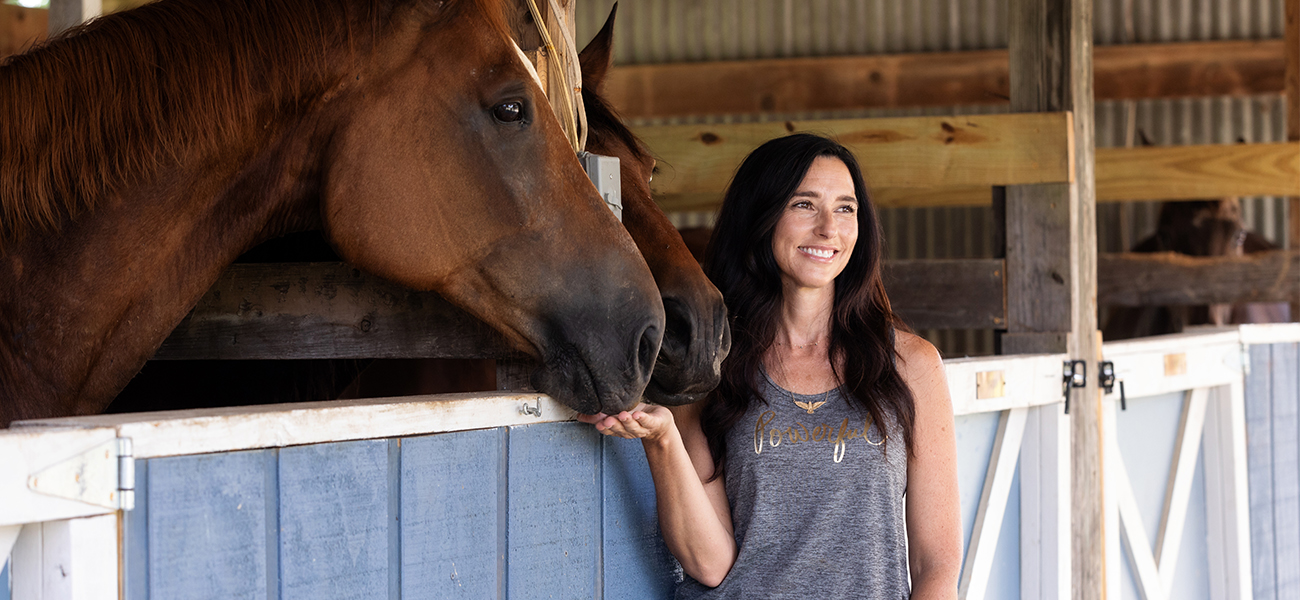
I am 225: Carrie Lewis
At a 40-acre barn in Denham Springs, visitors disconnect from their electronic devices and get back in touch with nature. Surrounded by tall trees and open air, they’ll ride and interact with some of the farm’s 14 horses. It’s therapeutic, says Horses of Hope founder Carrie Lewis.
“I want to have a place of healing for people and horses,” she says.
Lewis’ nonprofit provides a calming outdoor environment for spiritual and mental healing through close interactions with horses.
Now 50, Lewis has been riding horses since she was 11. As the Missouri native cared for the animals throughout her life, she felt spiritually compelled to share those benefits with others.
So in 2013, the full-time property manager started Horses of Hope at her father’s Denham Springs barn. Today, people of all ages can visit for equine-assisted therapy through experiential learning activities. Guests can learn how to ride horses, but they’ll also discover how to communicate with, care for and establish trust with the animals through body language. Every equine-assisted therapy client’s session is unique. Lewis treats people, families and groups with different mental and behavioral conditions such as anxiety, depression, PTSD and anger management.
Some of the animals are therapy horses, while others belong to locals who board them at Lewis’ barn. After establishing trust with a particular horse, locals can rent that horse for $100 a month. This allows clients to gain more experience taking care of horses and helps them determine whether they’d like to own one in the future, Lewis says.
As she educates others about these creatures, her hope is to foster mutually healthy relationships between humans and horses. “I feel like the horses benefit just as much as the people do,” she says. horsesofhope-eat.org
“In an area like Baton Rouge where a lot of people don’t have the opportunity to experience nature at this level with a farm-life environment, I really like that people can experience something out of the ordinary.”
This article was originally published in the July 2019 issue of 225 Magazine.

